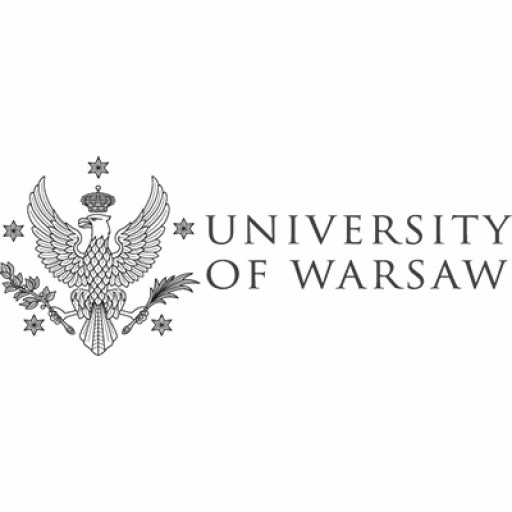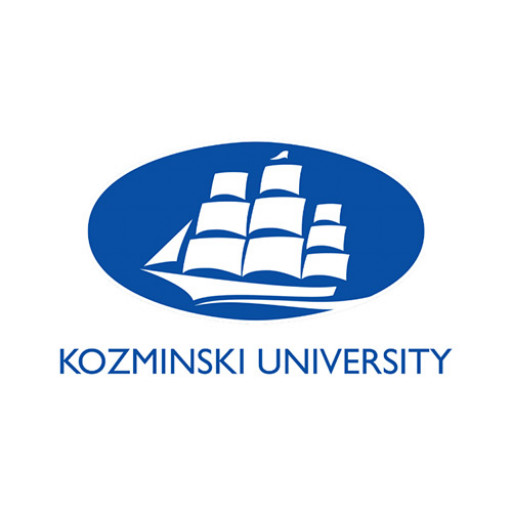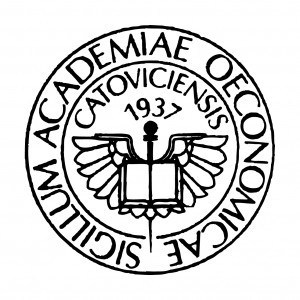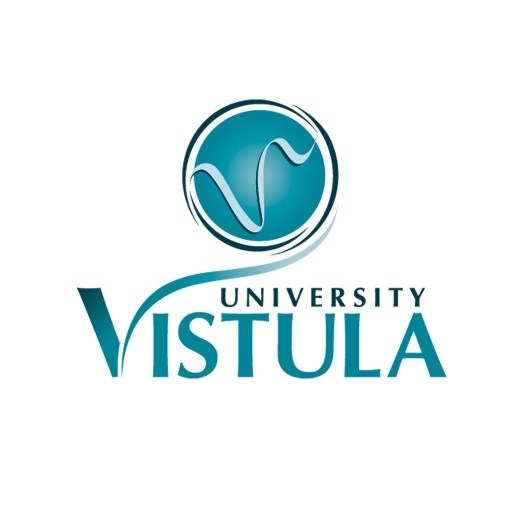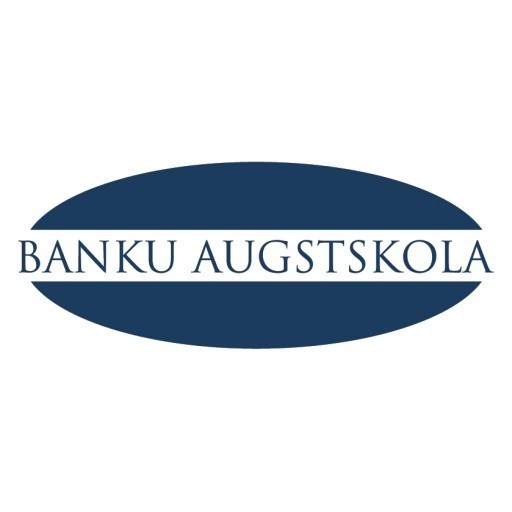Photos of university / #uniwersytetwarszawski
Economics and Finance with a specialization in Quantitative Finance at the University of Warsaw offers students a comprehensive and rigorous education designed to prepare them for advanced careers in financial analysis, risk management, investment banking, and financial technology. This program combines core principles of economics and finance with a strong emphasis on quantitative methods, mathematical modeling, and data analysis techniques essential for understanding complex financial systems. Students will gain a solid foundation in microeconomics, macroeconomics, econometrics, financial mathematics, and statistical analysis, enabling them to evaluate economic and financial data critically and accurately. The curriculum includes courses in financial markets and institutions, investment strategies, derivatives, portfolio management, and financial engineering, all taught by experienced faculty members with academic and industry expertise.
Throughout the program, students develop practical skills through hands-on training, including the use of specialized software such as MATLAB, R, and Python for financial modeling and data analysis. The specialization in Quantitative Finance emphasizes mathematical rigor, enabling students to design and implement sophisticated financial models, assess risks, and develop quantitative trading strategies. The program also offers opportunities for internships and collaboration with financial institutions, providing valuable real-world experience. Graduates of this program are well-equipped to pursue careers in quantitative analysis, financial consulting, risk management, or continue their education through master's and doctoral studies. The University of Warsaw’s strong academic reputation, close ties with the financial sector, and modern facilities ensure students receive high-quality education aligned with current industry standards. With a flexible curriculum and international orientation, the program prepares students to excel in the global financial markets and contribute innovatively to the field of quantitative finance.
The Quantitative Finance specialization within the Finance, Investments, and Accounting program at the University of Warsaw offers students a comprehensive and rigorous education designed to prepare them for careers in the dynamic fields of financial analysis, risk management, and investment strategies. The program combines advanced mathematical and statistical techniques with practical financial knowledge, enabling graduates to analyze complex financial data, develop quantitative models, and make informed investment decisions. Students will engage with courses covering financial mathematics, stochastic processes, econometrics, computational methods, and programming languages such as R and Python, equipping them with the technical skills necessary for modern finance. The curriculum also emphasizes understanding financial markets, instruments, and institutions, providing a solid foundation in theoretical and applied finance. Throughout the program, students have opportunities for hands-on experience through internships, simulation exercises, and research projects, fostering the ability to apply theoretical concepts in real-world scenarios. The specialization aims to develop analytical thinking, problem-solving abilities, and proficiency with financial software, ensuring graduates are well-prepared for roles in asset management, quantitative trading, financial consulting, and risk assessment. Collaborations with industry partners, seminars by financial experts, and participation in competitions further enhance students' practical skills and professional networks. The program's interdisciplinary approach integrates knowledge from economics, mathematics, and computer science, reflecting the evolving nature of the financial sector. Graduates of this specialization will be equipped to pursue careers in financial institutions, think tanks, regulatory bodies, and innovative fintech companies. They will be capable of tackling the challenges of financial modeling, portfolio optimization, and market prediction with confidence and expertise, making a meaningful impact in the fast-paced world of finance.
The program in Finance, Investments and Accounting with a specialization in Quantitative Finance at the University of Warsaw is designed to equip students with comprehensive knowledge and practical skills necessary for careers in finance, investment analysis, and accounting. The curriculum encompasses core courses in financial theory, quantitative methods, financial markets and instruments, as well as specialized subjects such as risk management, financial modeling, and computational finance. Students are required to complete a set of mandatory courses that provide a solid foundation in microeconomics, macroeconomics, corporate finance, and accounting principles, ensuring a well-rounded understanding of financial environments and regulatory frameworks. In addition to mandatory coursework, students can choose from a variety of electives to tailor their education according to their professional interests and career goals, including advanced topics in derivatives, portfolio management, statistical analysis, and programming languages relevant to finance such as Python and R.
The program emphasizes practical skills through case studies, financial simulations, and project work, often involving collaboration with industry partners. Students are expected to participate in internships or practical training sessions to gain real-world experience and develop their professional network. To graduate, students must successfully complete a set number of credits stipulated by the faculty, including both theoretical and practical modules, and pass examinations that assess their competence in quantitative and qualitative assessment of financial problems. A final thesis or project in quantitative finance is required, demonstrating the student’s ability to apply advanced analytical methods to real-world financial issues. Proficiency in English is essential, as the program is partially delivered in English and aims to prepare students for international careers. Academic performance, participation in workshops, seminars, and extracurricular activities related to finance are also considered for graduation requirements. In sum, the program's comprehensive structure ensures graduates are well-prepared for professional roles in finance, investment, and accounting sectors with a strong emphasis on quantitative analysis and technological applications.
The Finance, Investments and Accounting programme with a specialization in Quantitative Finance at the University of Warsaw offers a comprehensive curriculum designed to prepare students for careers in financial analysis, investment management, and accounting. The programme emphasizes the development of strong analytical skills, quantitative methods, and practical knowledge necessary for the dynamic financial sector. Students gain proficiency in financial modeling, risk management, portfolio optimization, and the use of advanced technological tools commonly employed in quantitative finance. The programme is structured to combine theoretical foundations with practical applications, including case studies, simulations, and internships, to ensure graduates are well-equipped to meet industry demands. The tuition fees are established by the university and vary depending on the student's status (EU or non-EU). Specific financing options include government scholarships for eligible students, which can significantly reduce the financial burden. Additionally, the university offers internal subsidies and financial aid based on academic merit or financial need. International students may also explore external scholarships or sponsorship opportunities provided by governmental or private organizations in their home countries. The programme fosters collaboration with financial institutions, providing networking opportunities and potential employer partnerships, which can facilitate future employment and internship placements. Payment plans are available to accommodate students' financial situations, allowing for installments over the duration of the programme. The university's dedicated student support services offer guidance on financial planning and scholarship applications. Overall, the financing of the studies is structured to support students from diverse backgrounds, ensuring access to high-quality education in quantitative finance.
The Quantitative Finance specialization within the Finance, Investments and Accounting degree program at the University of Warsaw offers students a comprehensive education in the mathematical and statistical methods used in financial decision-making processes. This program is designed to equip students with the skills to analyze financial markets, develop quantitative models, and implement sophisticated investment strategies. Students will gain a thorough understanding of financial theory, econometrics, and programming techniques essential for careers in risk management, asset management, trading, and financial analysis. The curriculum typically includes courses such as financial mathematics, stochastic processes, econometrics, computer programming, and financial derivatives, providing a solid foundation in both theoretical concepts and practical applications. The program emphasizes the importance of data analysis, quantitative methods, and technological proficiency in modern finance. It prepares students for roles in financial institutions, consulting firms, hedge funds, and regulatory agencies, where advanced quantitative skills are increasingly valued. Students might also have opportunities to participate in internships, research projects, and collaborations with industry professionals, which are vital for gaining practical experience and networking in the finance sector. Given the university's strong ties with the financial industry and academic excellence, graduates from this specialization are well-positioned for advanced studies or immediate employment in quantitative and analytical roles within the finance industry. The program aims to develop not only technical expertise but also analytical thinking and problem-solving skills necessary for tackling complex financial challenges in a rapidly changing global economy.
